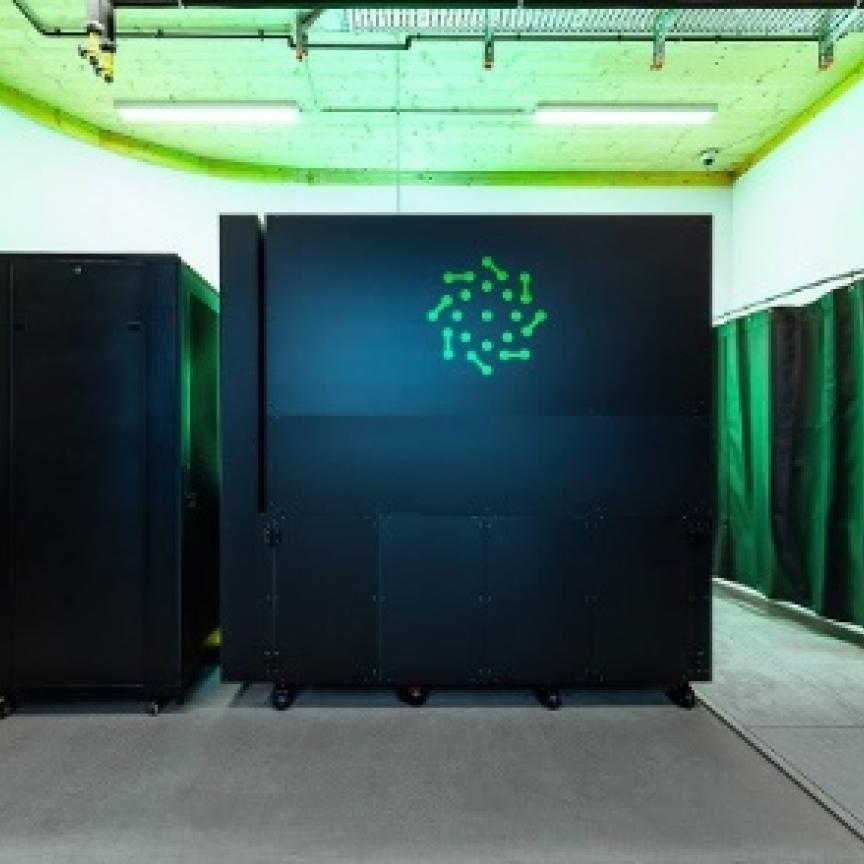AMD and Penguin Computing
AMD and Penguin Computing have donated seven petaflops of compute power as part of the AMD HPC Fund for COVID-19 research. New York University (NYU), Massachusetts Institute of Technology (MIT) and Rice University are the first universities named to receive complete AMD-powered, high-performance computing systems.
Daniel Huttenlocher, dean of the MIT Schwarzman College of Computing commented on the importance of computing resources in the fight against the current viral outbreak. ‘Across MIT we are engaged in work to address the global COVID-19 pandemic, from that with immediate impact such as modelling, testing, and treatment, to that with medium and longer term impact such as discovery of new therapeutics and vaccines. Nearly all of this work involves computing, and much of it requires the kind of high performance computing that AMD is so generously providing with this gift of a Petaflop machine,’
At the Center for Theoretical Biological Physics, Rice researcher José Onuchic is using his previous studies on influenza A as a guide to explore how the coronavirus's surface proteins facilitate entrance to human cells, the critical first step of infection. Another scientist, Peter Wolynes, is using principles from his foundational theories of protein folding to screen thousands of drug molecules and identify the best candidates for clinical tests based upon how well they bind to the virus's surface proteins.
Peter Rossky, dean of Rice's Wiess School of Natural Sciences said: ‘The AMD gift will be truly transformational for Rice's computational attack on COVID-19. We have the methods to progress, but studies of large, complex systems are at the cutting-edge of computational feasibility. The AMD contribution of dedicated, state-of-the-art computational power will be a game changer in accelerating progress toward defeating this virus.’
AMD also announced it will contribute a cloud-based system powered by AMD EPYC and AMD Radeon Instinct processors located on-site at Penguin Computing, providing remote supercomputing capabilities for selected researchers around the world.
‘Penguin Computing is looking forward to supporting and contributing to the COVID-19 research efforts through this AMD collaboration. We are committed to providing our applications and technology expertise in high performance computing, artificial intelligence and data analytics to both the University on-premises and our remote POD cloud environments,’ said Sid Mair, president of Penguin Computing.
Combined, the donated systems will collectively provide researchers with more than seven petaflops of compute power that can be applied to fight COVID-19.Contributions from Penguin Computing, NVIDIA, Gigabyte, and others are helping the AMD HPC Fund advance COVID-19 research.
‘Ultra-fast data speeds and smart data-processing are key to delivering insights that science demands, particularly in these challenging times,’ said Gilad Shainer, senior vice-president of marketing for Mellanox networking at NVIDIA. ‘NVIDIA Mellanox HDR 200 gigabit InfiniBand solutions provide high data throughput, extremely low latency, and application offload engines that accelerate bio-science simulations and further the development of treatments against the coronavirus.’
The AMD COVID-19 HPC fund was established to provide research institutions with computing resources to accelerate medical research on COVID-19 and other diseases. In addition to the initial donations of $15 million of high-performance computing systems, AMD has contributed technology and technical resources to nearly double the peak system of the ‘Corona’ system at Lawrence Livermore National Laboratory which is being used to provide additional computing power for molecular modelling in support of COVID-19 research.


